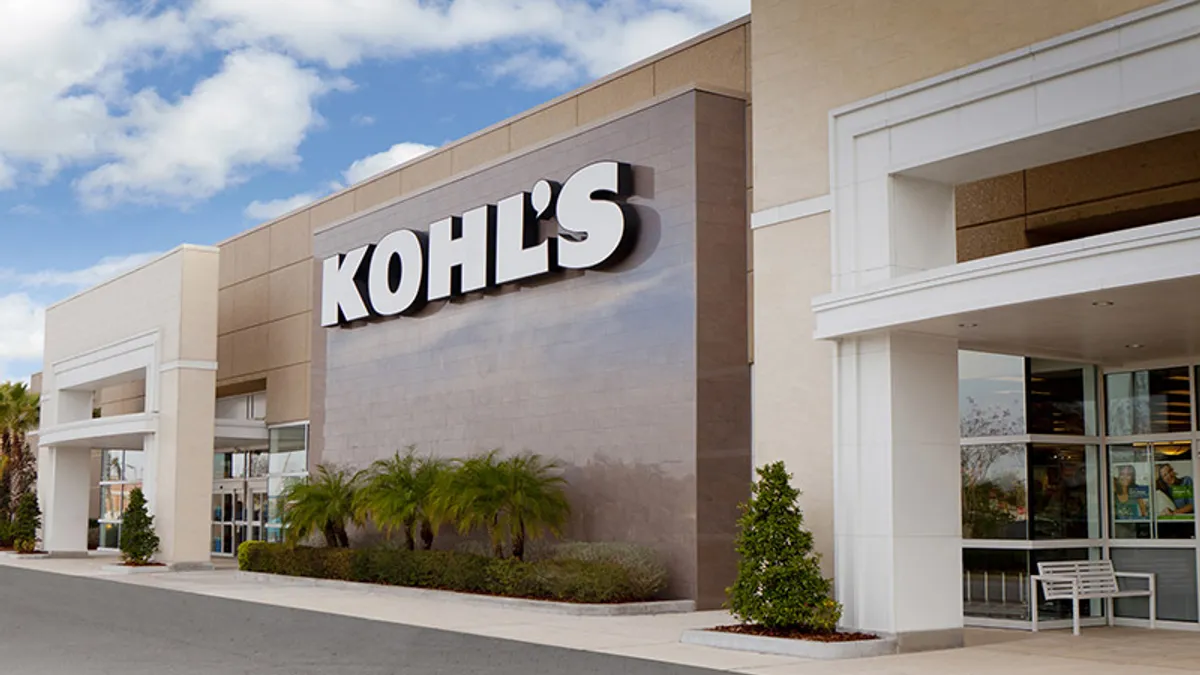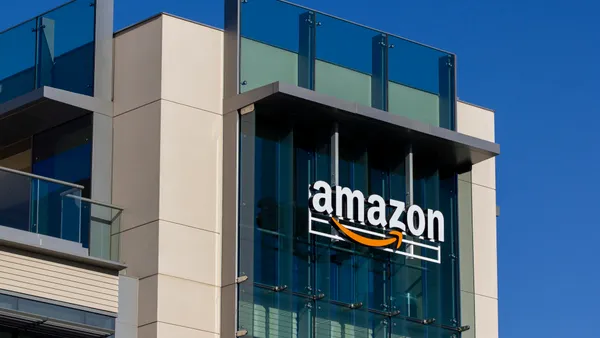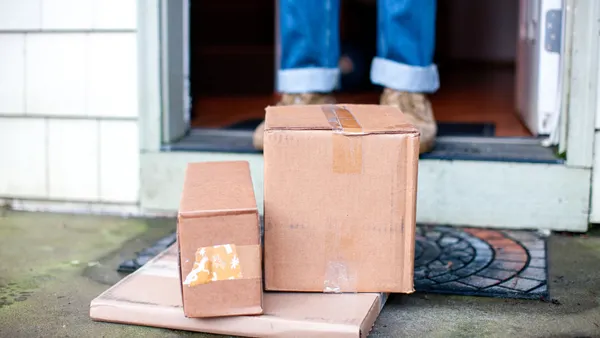Dive Brief:
- Kohl’s on Tuesday announced that starting next month 82 of its stores in the Los Angeles and Chicago areas will offer free returns for Amazon customers, according to a company press release.
- Kohl’s will pack and ship eligible Amazon return items at no charge. This, as the holiday season approaches.
- The move comes just a week after Kohl’s said it will feature a new "Amazon smart home experience" at 10 Kohl’s stores, also in the Los Angeles and Chicago areas, where customers will be able to purchase Amazon devices, accessories, and smart home devices and services directly within 1,000-square-foot zones dedicated to Amazon and staffed by Amazon associates.
Dive Insight:
This latest partnership between Amazon and Kohl’s addresses one of the biggest Amazon pain points — product returns. Many analysts hailed the move, saying Kohl’s will see some benefit as well. "The test … is an intelligent way for Kohl’s to: leverage unutilized parts of its store footprint and help improve frequency (and potentially drive sales higher) in its stores," Gordon Haskett analyst Chuck Grom said in an email to Retail Dive.
That, plus the partnership between Kohl’s and Amazon announced earlier shows how Kohl’s "continues to think outside the box and forward think on how to evolve in today’s quickly changing backdrop," Grom also said.
Jeffries analysts agreed. "Today's announcement of free [Amazon] returns at selected [Kohl’s] doors underscores the forward-looking thought leadership of [Kohl’s management to drive traffic and accommodate shifting consumer preferences," Jeffries wrote in a note emailed to Retail Dive, saying the service would likely spread to more than the initial 82 stores.
It’s not just Kohl’s — there’s an increasing level of collaboration between e-commerce and traditional retailers, as seen in Amazon’s acquisition of Whole Foods, Walmart’s e-commerce acquisition spree, and eBay executive Hal Lawton’s move to Macy’s, Grom said. Even Nordstrom’s experiment with a merchandise-free retail concept is part of that landscape, he noted.
"We continue to observe more and more collaboration between digitally native companies and traditional retailers – a theme that we think will continue to build momentum in the coming quarters," Grom said.
That’s in part because, while traditional retailers want to grab back some share from e-commerce, physical stores are still necessary, according to Jeffries. “While it's clear that stores now need to embrace an omnichannel world through digital growth, we believe this move highlights the value that stores bring to consumers,” Jeffries said. "We expect this to become increasingly clear in time, and view the best positioned retailers as those who successfully merge the online and in-store experience, creating a symbiotic relationship between the two. We believe Kohl's is being strategic in the execution of its omnichannel strategy by leveraging its strength (the scale of its physical store portfolio) and the strength of its partner (Amazon's highly-loyal customer base and innovative products)."
But not everyone sees a slam dunk. Doug Stephens, retail futurist and author of "Reengineering Retail: The Future of Selling in a Post-Digital World," in a tweet last week about Kohl’s Amazon spaces, said the move "seems like swallowing cyanide."
I’m all for taking risks but this move by Kohl’s just seems like swallowing cyanid | Amazon opens shop inside Kohl's https://t.co/R7bfD4APhX
— Doug @Retail Prophet (@RetailProphet) September 9, 2017
On Tuesday, regarding the latest tie-up, Stephens expanded on that, tweeting, "Kohl’s is either positioning for a sale to Amazon or they’re running on strategic vapour. Either way, it’s an interesting chess move."
Kohl’s is either positioning for a sale to Amazon or they’re running on strategic vapour. Either way, a very interesting chess move. https://t.co/F1cz72VAP6
— Doug @Retail Prophet (@RetailProphet) September 19, 2017
"Clearly Kohl’s feels that setting up this symbiotic relationship with Amazon as a means of differentiating from other similar chains and driving foot traffic to their stores," Stephens told Retail Dive in an email Tuesday after that tweet. "It’s a risky move, to say the least, in the sense that they are reducing their stores to becoming an ingredient in another brand’s go-to-market strategy. Either way, what I do admire in this is its level of daring."
This story is part of our ongoing coverage of the 2017 holiday shopping season. You can browse our holiday page and sign up for our holiday newsletter for more stories.















